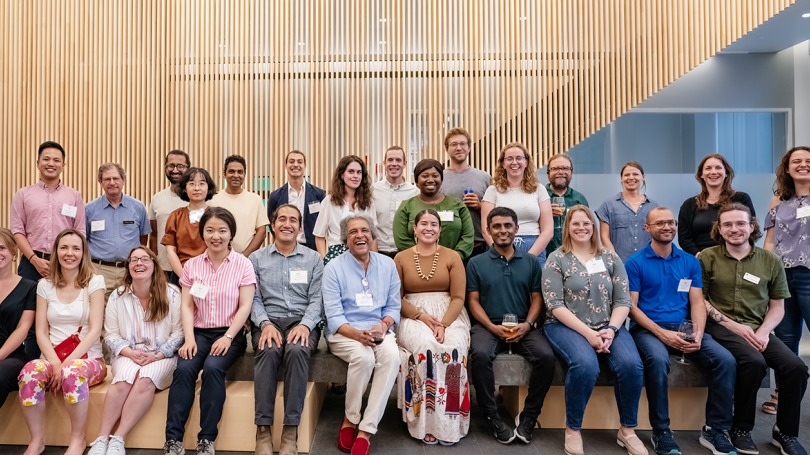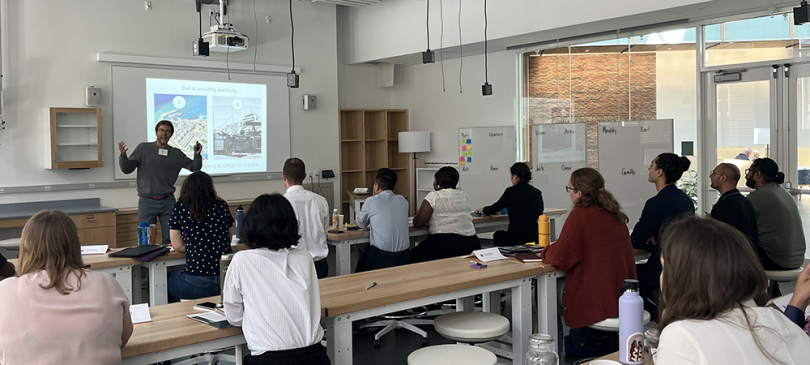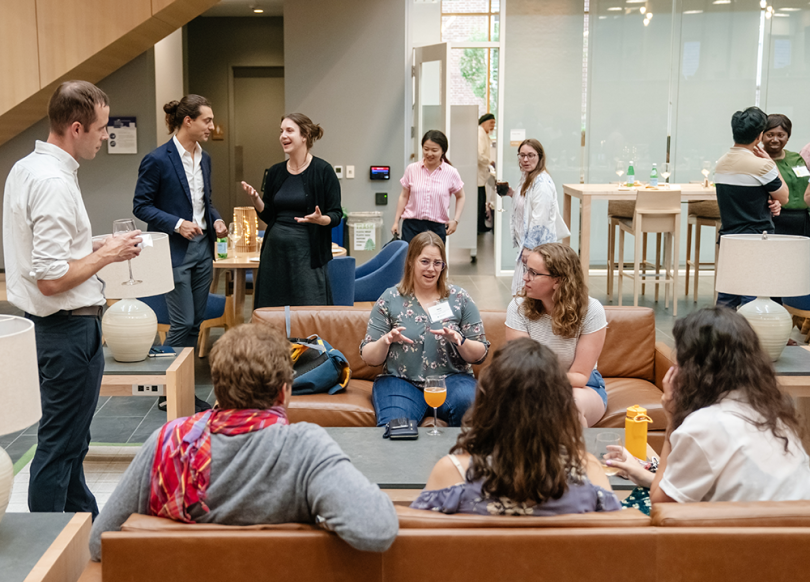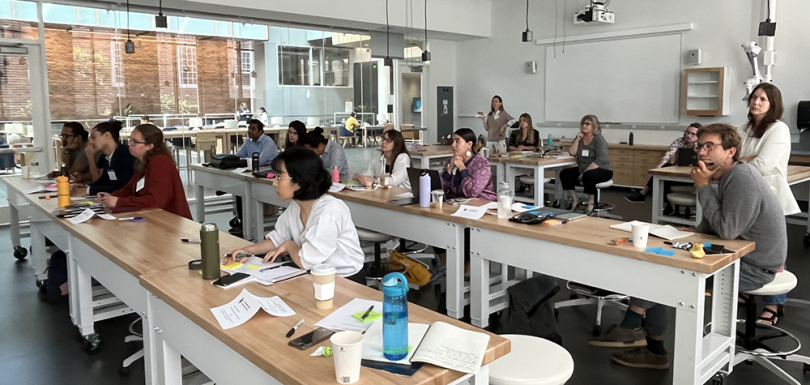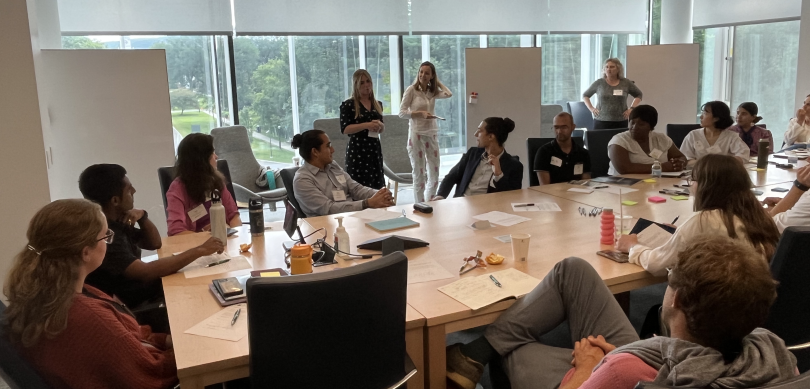New Collaborations Take on Urgent Challenges
The summer of 2023 has seen a host of climate challenges, from historic flooding and wildfires, to record-breaking heat and ocean temperatures. Against this backdrop of accelerating impacts, and with a heightened sense of urgency, purpose, and positivity, the Arthur L. Irving Institute for Energy and Society convened its second cohort of early-career energy and climate researchers during the New Energy Summer Summit in July.
"The summit provides a unique opportunity for researchers at the start of their academic careers to meet other researchers from across the disciplines to work together on pressing energy and climate challenges," said Dr. Megan Litwhiler, Irving Institute Manager of Academic Inititatives. "We're hoping to catalyze new interdisciplinary opportunities and help expand a growing and high-impact network that will play a role in devising equitable and durable climate and energy solutions."
Building on the summer '22 summit's successes while adding some new elements, the Institute welcomed 19 "Summiteers" from 17 US and Canadian universities (including Dartmouth!) to campus from July 23-26. In addition to fireside chats with Dartmouth faculty like Sol Diamond, Becky Clark, and Justin Mankin, and casual networking meals, this year's summit offered the opportunity for the group to develop and plan ongoing collaborative, interdisciplinary projects.
Enduring Networks
"This summer, we really aimed to seed collaborative projects that would enable the participants to continue to work with and learn from each other beyond the days of the summit itself," explained Dr. Litwhiler.
To this end, over the course of the event, the participants organized themselves into small, cross-disciplinary working groups focused on a particular and self-defined challenge and developed a project proposal and a plan for how to communicate with a broader audience.
One group developed an open-access syllabus for teachers seeking to embed energy and climate in their classrooms. Another group mapped out a strategy to connect energy and climate researchers in the global south via a series of online and eventually in-person workshops and conferences.
One participant, remarking on why they found the charge to think about how to communicate to a broader community so useful, explained, "Researchers create amazing things, but we are disconnected from how to communicate this to broad audiences; it was challenging to think how to structure the communication process of your work."
Other participants agreed that the summit was an energizing and inspiring opportunity. "The summit is a one-of-a-kind event and collaboration/ incubator for energy-related projects across disciplines, and I find that to be very useful. This is particularly important as it shows the multidimensionality of the energy challenge but also allows us as researchers to embrace new ways of approaching the problem," said one Summiteer.
Another flagged the value of the summit in helping bring together different disciplines to meet climate and energy challenges: "I feel like I was challenged to think outside the box that is my research and understand that there are so many different ways to approach energy problems, and that solutions aren't always easy to implement."
The Institute as Convener
The overwhelmingly positive reception is music to the Institute's ears. "We see interdisciplinary collaboration as key to addressing the urgent climate and energy challenges humanity is facing," said Irving Institute Academic Director Amanda Graham. "We're thrilled to be a resource in convening the rising stars of energy and climate research to help build the capacity and connections needed to meet these complex challenges."
You can learn more about this year's cohort here.
